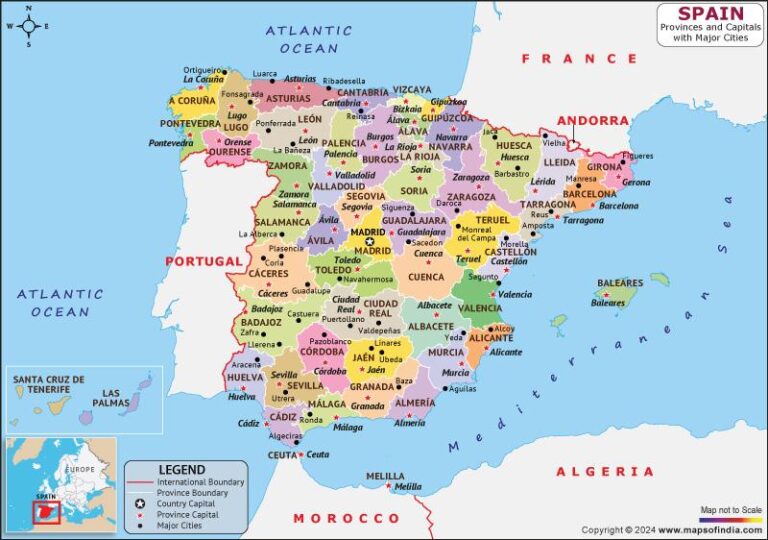Spain has officially barred Israeli ministers Itamar Ben Gvir and Bezalel Smotrich from entering the country, marking a significant diplomatic move amid escalating tensions in the Middle East. The Spanish government cited concerns over the ministers’ political stances and actions, which Madrid deems incompatible with its commitment to peace and human rights. This unprecedented ban underscores growing international scrutiny of Israeli officials involved in controversial policies and could signal a shift in European responses to developments in the region.
Spain Bars Israeli Ministers Ben Gvir and Smotrich Citing Security Concerns
In a decisive move reflecting heightened security vigilance, Spanish authorities have denied entry to two prominent Israeli ministers, invoking concerns over potential unrest. The decision targets ministers known for their polarizing stances, with officials emphasizing the need to maintain public order and prevent any escalation of tensions within Spain’s diverse communities. This unprecedented ban highlights Spain’s cautious approach to foreign political figures whose rhetoric or policies might ignite controversy or provoke demonstrations on Spanish soil.
Key points behind Spain’s decision include:
- Risk assessment of potential security threats related to the ministers’ visits.
- The ministers’ association with policies that have drawn international criticism.
- Commitment to safeguarding community harmony amid complex geopolitical sensitivities.
| Minister | Role | Reason for Ban | Security Risks |
|---|---|---|---|
| Itamar Ben Gvir | Minister of National Security | Provocative rhetoric | Potential protests and unrest |
| Bezalel Smotrich | Minister of Finance | Controversial policies | Community tensions |
Implications for Spain Israel Diplomatic Relations and Regional Stability
The unprecedented decision by Spain to bar Israeli ministers Itamar Ben Gvir and Bezalel Smotrich underscores a growing tension in bilateral diplomatic ties. This move signals a clear rebuke of what Madrid perceives as provocative policy stances by these figures, particularly concerning settlement expansions and hardline security measures. Spain’s stance highlights a commitment to international law and human rights, aligning with broader European Union concerns, but risks escalating diplomatic friction with Israel, which has historically been a delicate balancing act.
From a regional perspective, this diplomatic rift could resonate beyond the Iberian Peninsula. Spain, a key player in the EU and the Mediterranean, wields influence on Middle Eastern policy and peace initiatives. The fallout may impact:
- EU-Israel relations: Potentially encouraging other member states to adopt a more critical approach towards Israeli policies.
- Regional dialogue efforts: Complicating Spain’s role as a mediator in peace negotiations between Israel and Palestine.
- Security cooperation: Straining intelligence and counterterrorism collaborations that are vital in the volatile region.
| Stakeholder | Potential Impact | Short-Term Outlook | ||||||||||
|---|---|---|---|---|---|---|---|---|---|---|---|---|
| Spain | Assertive diplomatic posture | Increased tensions with Israeli officials | ||||||||||
| Israel | Perception of political isolation | Israel | Perception of political isolation | Possible diplomatic retaliation or cooling of relations with Spain and EU | ||||||||
| European Union | Pressure to adopt unified stance on Israeli policy | Debates within member states on foreign policy alignment | ||||||||||
| Palestinian Authority | Potential bolstering of diplomatic support | Increased diplomatic engagement with Spain and EU actors |
| Stakeholder | Role in Dialogue | Potential Impact | ||||||||||
|---|---|---|---|---|---|---|---|---|---|---|---|---|
| Government Officials | Negotiators and policy drivers | Policy reforms and ceasefire agreements | ||||||||||
| Civil Society Groups | Advocates for human rights and reconciliation | Grassroots support and peaceful dialogue promotion | ||||||||||
| International Mediators | Neutral facilitators of talks |
Amid rising international concerns, specialists emphasize the urgent need for open communication channels between the involved parties. Many analysts argue that dialogue remains the most effective tool to defuse mounting geopolitical tensions, especially in volatile regions. They propose adopting a multi-layered approach that includes regional cooperation, engagement with civil society actors, and sustained diplomatic efforts from global stakeholders. Key recommendations put forward by experts include:
|




